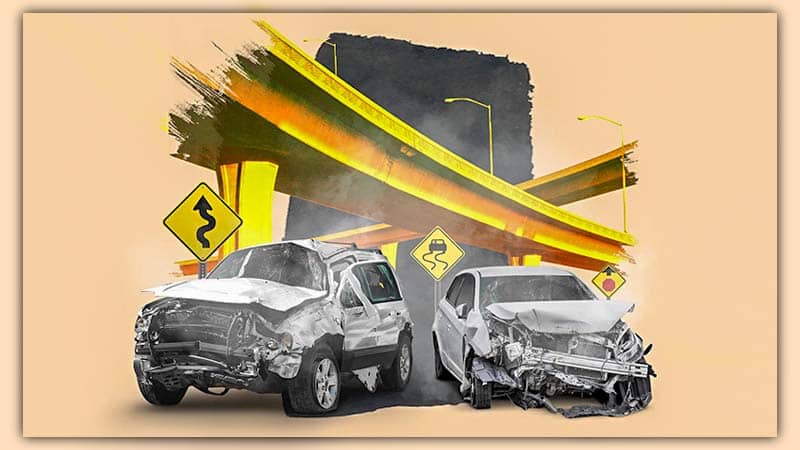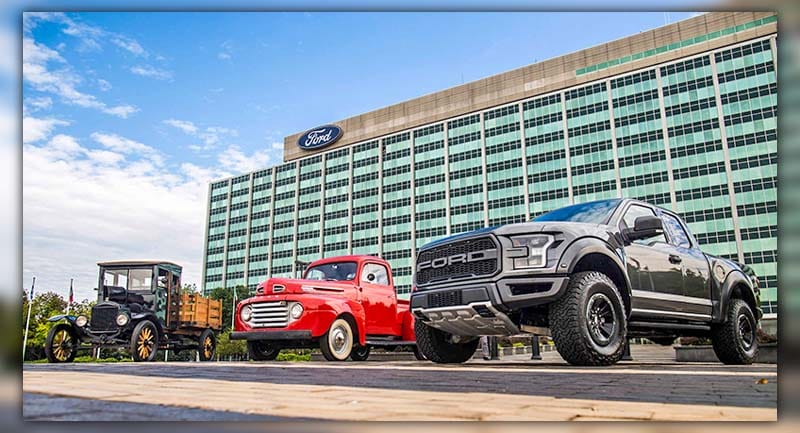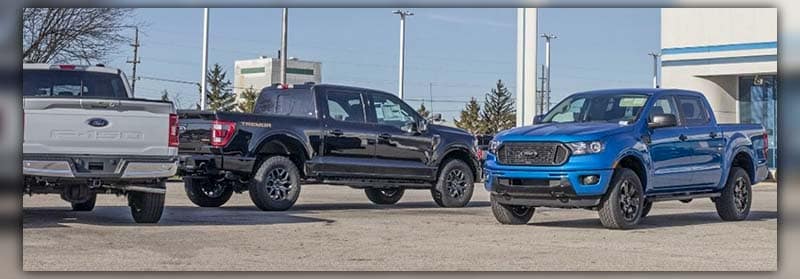Everyone wants to feel safe on the road. The type of vehicle you drive can make a significant difference in your overall safety. One question many people ask is: are pickup trucks safer than cars and SUVs to drive? Let’s dive into this topic and see what we can find.
Table of Contents
How Safe Are Pickup Trucks?
Pickup trucks have a reputation for being rugged and tough. They’re built to withstand rough conditions and heavy loads. But does this make them safer? In many ways, yes.
The are pickup trucks safe debate often begins with their size. Pickup trucks are typically larger and heavier than most cars and some SUVs. In the event of a collision, physics plays in favor of the pickup truck. Their larger size can absorb and distribute impact forces better due to the increased crumple zone and structural reinforcement, potentially reducing the risk of severe injuries.
Additionally, pickup trucks have a higher ground clearance. This height advantage allows drivers to see further down the road, providing a better view of potential hazards. When it comes to handling adverse weather conditions, trucks generally have a good track record. With 4-wheel drive capabilities, they’re often better equipped to handle slippery or off-road conditions than many cars and some SUVs.
However, pickup trucks also have their drawbacks. Due to their larger size, they can be more difficult to maneuver and require more space to stop. They are also more prone to rollovers compared to lower-profile vehicles.
So, if you’re asking, “are trucks safer than cars”, the answer isn’t a straightforward yes or no. It depends on various factors, including the specific models being compared, the driving conditions, and the driver’s skill and experience.

Are Pickup Trucks Safer Than Cars And SUVs (Which Vehicle Is Safer To Drive)
Moving on to our main question – are pickup trucks safer than cars and SUVs to drive? Let’s delve a bit deeper into this.
Generally, modern cars, pickup trucks, and SUVs all come with a suite of safety features, such as airbags, anti-lock braking systems (ABS), electronic stability control, and advanced driver-assistance systems (ADAS). So, regardless of the vehicle type, you can expect a decent level of protection. Now, let’s compare the safety characteristics of cars, pickup trucks, and SUVs.
Cars:
Cars, particularly small ones, are usually more nimble and easier to maneuver than pickup trucks. They also have a lower center of gravity, which reduces their risk of rollovers. In terms of crash safety, newer cars are built to absorb impact better and protect occupants during a collision. But, when involved in accidents with larger vehicles like trucks or SUVs, cars generally don’t fare as well due to their smaller size.
Pickup Trucks:
When discussing how much safer are trucks than cars, one must remember that pickup trucks’ larger size and weight give them an advantage in collisions. However, their higher center of gravity also makes them more susceptible to rollovers. And while they might be tougher in collisions, their larger size can make them more challenging to handle in emergency maneuvers.
SUVs:
SUVs sit somewhere in between cars and pickup trucks. They share some of the handling advantages of cars, but their size and weight provide better protection in a collision, similar to pickup trucks. However, like pickup trucks, SUVs have a higher center of gravity which increases the risk of rollovers.

So, Are Bigger Vehicles Safer?
Often, when people are trying to answer the question, “are trucks safer than cars?”, they look to the vehicle’s size as a determinant of safety. It’s a common belief that bigger equals safer, but is this necessarily true?
Bigger vehicles like pickup trucks and SUVs do have certain advantages. Their larger size and weight can offer more protection in a collision with a smaller vehicle. They tend to be more visible on the road, reducing the risk of being overlooked by other drivers. Plus, their higher ride height gives the driver a better view of the road.
However, this doesn’t mean that bigger vehicles are always safer. Their larger size can make them harder to control and maneuver, particularly at high speeds or in emergency situations. The higher center of gravity can also increase the risk of rollovers, especially in sharp turns or if the vehicle veers off the road.
Furthermore, the safety of a vehicle isn’t solely determined by its size. Safety features, such as airbags, crumple zones, ABS, and electronic stability control, play a crucial role in protecting the occupants during a crash. Advances in technology have led to the development of small and midsize cars that are just as safe, if not safer, than larger vehicles.
Another critical factor in vehicle safety is the driver’s skill and behavior. A safe, cautious driver can mitigate many risks, regardless of the vehicle’s size.

Frequently Asked Questions
Are pickup trucks safer than cars in accidents?
A: Pickup trucks’ larger size and weight can offer better protection in a collision with a smaller vehicle. However, they are more prone to rollovers due to their higher center of gravity.
Are pickup trucks better equipped to handle adverse weather conditions?
A: With their 4-wheel drive capabilities, pickup trucks are often better equipped to handle slippery or off-road conditions than many cars. However, this can vary depending on the specific models being compared.
Are bigger vehicles always safer?
A: Not necessarily. While bigger vehicles like pickup trucks and SUVs can provide certain safety advantages, they also have their drawbacks. Safety is not solely about size but involves a combination of factors including vehicle design, safety features, and driver behavior.
Final Thoughts
In conclusion, the question, “are pickup trucks safer than cars and SUVs to drive?”, is complex. While pickup trucks have certain safety advantages due to their larger size and weight, they also have drawbacks like being more prone to rollovers.
Cars, SUVs, and pickup trucks each have their own safety characteristics. Ultimately, the safety of a vehicle depends on a combination of its design, safety features, and the skill and behavior of the driver.
When considering a vehicle’s safety, it’s crucial not to base your decision solely on its size or type. Instead, look at the vehicle as a whole, considering its safety features, how it’s designed to protect you in a crash, and how well it fits your driving style and typical driving conditions.
Drive safely, no matter what you choose to drive.

With a wrench in one hand and a trucker’s hat on my head, I’ve been knee-deep in the world of trucks for over a decade. From tinkering in greasy garages to cruising down open highways, my life has been one big trucking adventure. I’ve hauled, repaired, and revved up more rigs than I can count, and now I’m revving up your truck knowledge with articles that’ll steer you right.

